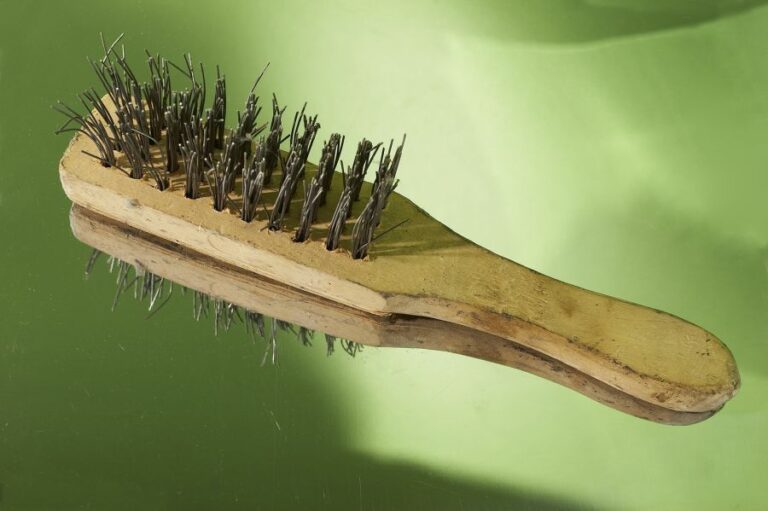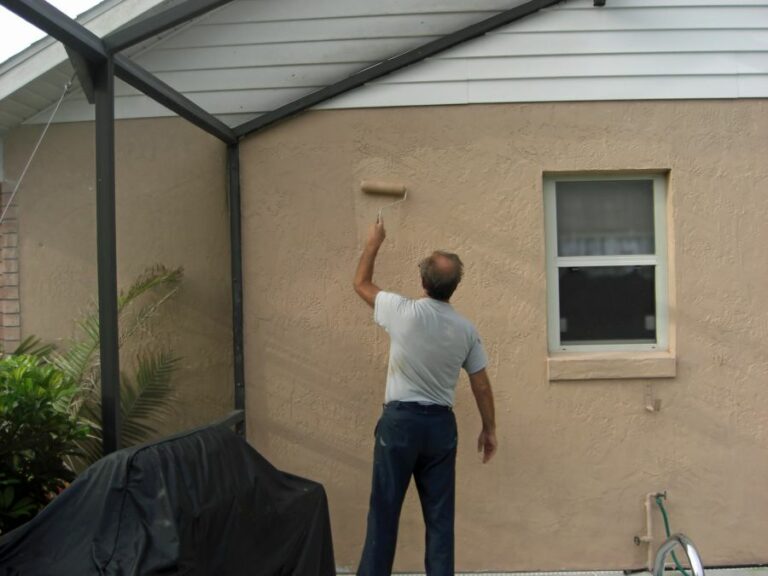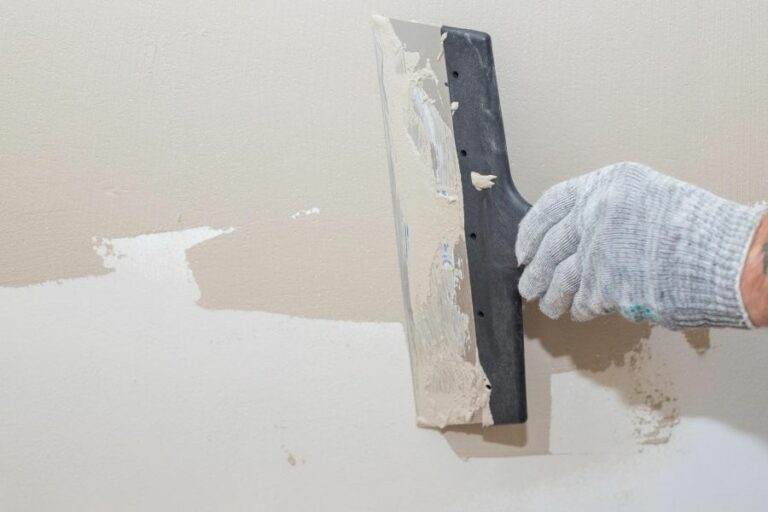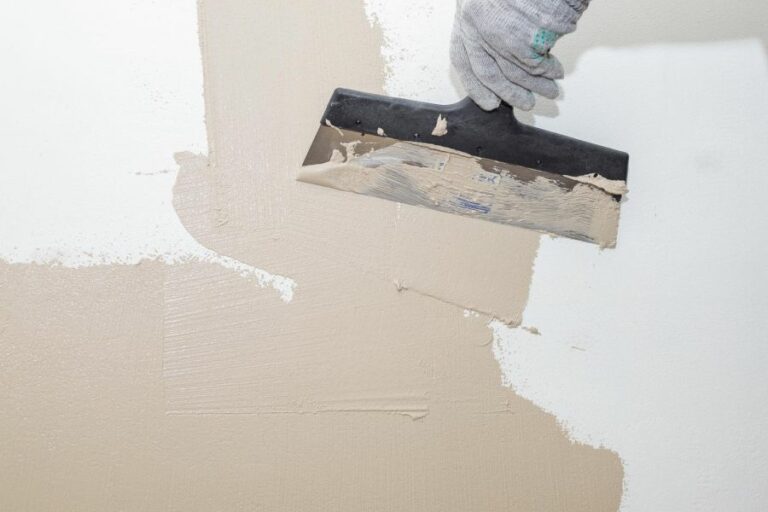Eliminating Dirt With Wire Brushes, 25 Things You Should Know
Are you tired of dealing with stubborn dirt, debris, and grime on various surfaces? Fear not. We have the perfect solution for you: wire brushes! With these fantastic and versatile tools, you can eliminate dirt in a matter of minutes, making your cleaning tasks more comfortable and efficient.
Eliminating dirt with wire brushes:
Eliminating dirt with wire brushes involves selecting the appropriate brush type (handheld, wheel, cup, or end), bristle material (steel, stainless steel, brass, or nylon), and proper techniques to avoid damage. It is a practical method for cleaning various surfaces, improving efficiency, and ensuring effectiveness. Always wear personal protective equipment when using wire brushes, especially powered ones.

Discover the power of wire brushes in eradicating stubborn dirt and grime from various surfaces. Unveil their diverse types, appropriate usage, and valuable maintenance tips. Read on to transform your cleaning endeavors completely!
Contents
- 1 Wire Brushes: Effective Dirt Elimination Solution
- 2 Is Dirt Removal Possible with a Wire Brush?
- 3 Cleaning Applications for Wire Brushes: An Overview
- 3.1 • Cleaning Rust and Corrosion from Metal Surfaces
- 3.2 • Cleaning Surfaces Prior to Painting or Welding
- 3.3 • Removing Paint from Surfaces
- 3.4 • Cleaning Barbecue Grills and Oven Racks
- 3.5 • Removing Loose Mortar and Cleaning Masonry Surfaces
- 3.6 • Cleaning Garden Tools and Equipment
- 3.7 • Cleaning and Maintaining Pool Tiles and Filters
- 3.8 • Descaling Fish and Preparing Seafood
- 3.9 • Cleaning Between Tiles and Grout
- 4 Benefits of Wire Brushes: A Comprehensive Analysis
- 5 Exploring Wire Brush Use in Automotive Detailing
Wire Brushes: Effective Dirt Elimination Solution
Wire brushes are essential tools for removing dirt, rust, paint, and other debris from various surfaces. They come in different sizes, shapes, materials, and designs to suit various applications.
• Types of Wire Brushes
There are several types of wire brushes, each designed for specific tasks. Choosing the appropriate style can make the cleaning process much more efficient.
– Handheld Wire Brushes
Handheld wire brushes are perfect for cleaning small or hard-to-reach areas. They come in various sizes and bristle stiffness. Use softer bristles for delicate surfaces and stiffer bristles for stubborn dirt or rust.
– Wire Wheel Brushes
Wire wheel brushes attach to electric drills, providing a rotating cleaning surface. This type of brush is excellent for removing paint, rust, and dirt from large surfaces or contours.
– Wire Cup Brushes
These brushes resemble a cup and attach to an angle grinder. Wire cup brushes are perfect for removing rust, paint, and dirt from areas with edges, corners, or other irregularities.
– Wire End Brushes
These small, rounded brushes attach to a rotary tool, suitable for cleaning tight spaces, holes, and crevices.
• Selecting the Right Bristle Material
Wire brushes come with a range of bristle materials, including steel, stainless steel, brass, and nylon. Each material has specific uses and characteristics.
– Steel Wire Brushes
These brushes have firm bristles, making them ideal for removing heavy rust, paint, and tough dirt. Steel wire brushes can scratch or damage delicate surfaces.
– Stainless Steel Wire Brushes
Like steel brushes, stainless steel brushes have firm bristles but are less prone to rusting. They’re excellent for removing rust, paint, and dirt from stainless steel and aluminum surfaces without contaminating them with iron particles.
– Brass Wire Brushes
Brass wire brushes have softer bristles that won’t scratch most surfaces. They’re perfect for cleaning sensitive materials, such as brass, copper, and bronze finishes.
– Nylon Wire Brushes
Nylon brushes, while not technically wire brushes, offer a gentle cleaning option. Their bristles clean delicate surfaces, such as wood or plastic, without causing damage.
• Personal Protective Equipment
When using wire brushes, especially powered ones, wear proper personal protective equipment (PPE) to avoid injuries. Recommended PPE includes:
- Safety goggles to protect your eyes from flying debris.
- Work gloves to protect your hands from sharp bristles and the rotating tool.
- Earplugs or earmuffs to reduce noise, especially when using powered brushes for extended periods.
• Technique for Eliminating Dirt
Effective cleaning with a wire brush relies on using the appropriate brush type, bristle material, and technique. Here are some helpful tips and recommendations based on personal experience.
– Handheld Wire Brushes
- Choose the correct brush size and bristle stiffness for the task.
- Apply firm, even pressure to brush the surface, moving in a back-and-forth motion.
- For stubborn dirt or rust, consider using a metal scraper before brushing.
- If necessary, apply a cleaning solution or rust remover to aid the cleaning process.
– Powered Wire Brushes
- Always use the recommended brush attachment for the specific power tool you’re using.
- Start at a lower speed and gradually increase as needed.
- Avoid excessive pressure, as this can damage the surface or the brush.
- When using a wire wheel brush or cup brush, hold the power tool at a slight angle to the surface to avoid digging into the material.
- Clean in a consistent, overlapping pattern to ensure even removal of dirt, rust, or paint.
• Cleaning and Reusing Wire Brushes
Wire brushes can have a long lifespan if properly maintained. After each use, clean the brush using a wire brush comb or an old toothbrush. Remove debris from the bristles and allow the brush to air dry. Store wire brushes in a cool, dry location away from moisture to prevent rusting.
• Conclusion
In conclusion, eliminating dirt with wire brushes is a practical method for cleaning various surfaces, from metal to wood. Selecting the appropriate brush type and bristle material and employing a proper technique can make the process more efficient and effective.
Remember to follow safety precautions and maintain your brushes for extended use.
Is Dirt Removal Possible with a Wire Brush?
There are numerous ways to clean surfaces and materials, but sometimes, you need a tool that is both simple and effective. The wire brush is a tool that can help remove dirt and other debris from various surfaces.
• Types of Wire Brushes
There are several types of wire brushes available on the market, each with its own unique benefits and intended purposes. Here are some of the most common types of wire brushes:
– Brass Wire Brushes
Brass wire brushes are perfect for use on softer surfaces and materials, such as wood or non-ferrous metals like copper and brass. These brushes are non-sparking and can withstand high temperatures, making them a popular choice for some welding cleaning operations.
– Stainless Steel Wire Brushes
Stainless steel wire brushes are durable and versatile, making them suitable for use on various surfaces, including stainless steel, die-cast material, and aluminum.
The stainless steel bristles are resistant to rust and corrosion, making them an excellent choice for wet environments or applications where moisture is present.
– Carbon Steel Wire Brushes
Carbon steel wire brushes are known for their aggressive cleaning capabilities. Due to their higher hardness level compared to brass and stainless steel brushes, carbon steel brushes can remove dirt, paint, and rust more effectively from surfaces like concrete or iron.
• Can a Wire Brush Remove Dirt?
In short, yes, wire brushes can effectively remove dirt from surfaces, but the type of brush and surface being cleaned play a crucial role in achieving the best results. Here’s a breakdown of how each type of brush is best suited to remove dirt from different surfaces.
– Brass Wire Brushes
Due to the softness of the brass bristles, these brushes are not the best choice for removing dirt from hard surfaces like concrete or metal. Instead, brass wire brushes are ideal for cleaning softer materials where a gentle touch is required.
When removing dirt from wooden surfaces or softer metals, such as brass and copper, a brass wire brush can be highly effective, eliminating accumulated dirt without causing damage to the material.
– Stainless Steel Wire Brushes
Stainless steel wire brushes provide a stronger cleaning action compared to brass brushes, making them suitable for removing dirt from harder surfaces like metal and plastic. However, they may also cause scratches to the surface if not used with caution.
To avoid damaging the surface, apply light pressure while using the brush and keep the bristles parallel to the surface, not perpendicular. And remember that stainless steel brushes should not be used on softer materials, such as wood or brass, as they could cause irreparable damage.
– Carbon Steel Wire Brushes
Carbon steel wire brushes are the most aggressive in terms of cleaning action. These brushes are ideal for removing dirt from surfaces like metal, concrete, or iron.
However, their aggressive nature should be used with caution, as they can quickly create scratches or other damage if not used appropriately. Similar to stainless steel brushes, it’s essential to maintain light pressure and keep the bristles parallel to the surface during your cleaning.
• Tips for Using Wire Brushes to Remove Dirt
To optimize the effectiveness of your wire brush and protect the surfaces being cleaned, follow these tips:
- Choose the appropriate brush for the surface: Selecting the right wire brush for the material being cleaned is crucial. Remember that brass brushes are best for softer surfaces, stainless steel brushes for harder surfaces, and carbon steel brushes for the most robust materials.
- Clean the surface in a single direction: Avoid rubbing the brush back and forth on the material. Instead, use a consistent single-direction motion to prevent surface damage and ensure more efficient dirt removal.
- Clean your wire brush regularly: Accumulated dirt and debris can reduce the effectiveness of the brush. Rinse your brush thoroughly in water after each use to remove dirt, and allow it to air-dry completely before storing or reusing it.
- Replace your brush when worn: As the bristles begin to wear down or become damaged, the brush’s cleaning effectiveness will decrease. Replace your wire brush as needed to maintain optimal cleaning results.
• Conclusion
Yes, a wire brush can indeed remove dirt from various surfaces when used correctly. Choose the right wire brush for the surface and follow proper cleaning techniques to ensure a thorough and damage-free cleaning experience.
Cleaning Applications for Wire Brushes: An Overview
• Cleaning Rust and Corrosion from Metal Surfaces
One of the primary uses of wire brushes is for removing rust and corrosion from various metal surfaces. This includes automotive parts, tools, and outdoor metal furniture.
By scrubbing the surface with a wire brush, you can effectively loosen and remove the rust buildup, leaving a clean, smooth surface behind. For optimal results, it is recommended to use a wire brush attachment on a power tool such as a drill or angle grinder.
• Cleaning Surfaces Prior to Painting or Welding
Before painting or welding metal, it is essential to ensure that the surface is clean and free of debris, as this can impact the overall quality and appearance of the final result.
Wire brushes are an excellent tool for cleaning surfaces in preparation, as they can easily remove dirt, rust, and old paint. To avoid the risk of cross-contamination, use separate wire brushes for different surfaces and materials.
• Removing Paint from Surfaces
A wire brush is a useful tool for stripping paint from various surfaces, such as wood, metal, or masonry. By carefully scrubbing the surface with a wire brush, you can loosen and remove the paint, allowing for easier application of new paint.
Be sure to choose the appropriate wire brush for the type of surface you are working with, and always wear proper protective gear during the process.
• Cleaning Barbecue Grills and Oven Racks
Wire brushes play a crucial role in maintaining cleanliness and hygiene in the kitchen, particularly when it comes to cleaning barbecue grills and oven racks.
With their robust and sturdy bristles, wire brushes can effectively remove baked-on grease, food particles, and other stubborn residues from grills and oven racks. Be sure to clean the wire brush thoroughly after each use, and replace it regularly to ensure optimal performance.
• Removing Loose Mortar and Cleaning Masonry Surfaces
When working with masonry surfaces, it is often necessary to remove any loose mortar or debris before undertaking repair or restoration work. Wire brushes are an ideal tool for this purpose, as they can easily dislodge and remove loose materials from brick, concrete, and stone surfaces.
Additionally, wire brushes may also be used to clean masonry surfaces of dirt, grime, and mildew.
• Cleaning Garden Tools and Equipment
Regular maintenance of garden tools and equipment is essential to ensure their longevity and optimal performance. Wire brushes can be used for cleaning shovels, rakes, trowels, and other garden tools, removing any dirt, rust, or debris that may have accumulated.
For larger equipment such as lawnmowers, a wire brush can help dislodge grass clippings and other debris from the blades and other components.
• Cleaning and Maintaining Pool Tiles and Filters
Wire brushes can be employed in the upkeep of swimming pools, where they can effectively clean tiles and filters. With their ability to remove accumulated algae, calcium deposits, and dirt from pool tiles, wire brushes ensure a clean and hygienic environment for swimmers.
Additionally, a wire brush can be used for cleaning and maintaining pool filters and dislodging any debris or buildup that may affect water circulation and filtration.
• Descaling Fish and Preparing Seafood
In the culinary realm, wire brushes can also be used for preparing seafood, particularly for descaling fish. By gently scraping the bristles across the fish’s skin, you can effectively remove scales without damaging the flesh.
Wire brushes specifically designed for this purpose often feature a comfortable grip and a curved head to better accommodate the shape of the fish.
• Cleaning Between Tiles and Grout
Wire brushes can also be employed in cleaning the grout between tiles, as their bristles can reach into tight spaces and effectively remove dirt, grime, and mildew. Opt for a narrower wire brush with a comfortable grip to make this task easier and more efficient.
It is recommended to periodically reseal your grout after cleaning to maintain its appearance and durability.
In conclusion, wire brushes are a versatile and practical tool with a wide range of applications in cleaning and maintenance tasks. By selecting the appropriate type of wire brush for your specific needs, you can achieve optimal results and prolong the life of your tools, equipment, and surfaces.
| Items to clean |
|---|
| Grill grates |
| Rust off metal surfaces |
| Paint from surfaces |
| Garden tools |
| Concrete surfaces |
| Dirty pans and pots |
| Bathroom fixtures |
Benefits of Wire Brushes: A Comprehensive Analysis
• Versatility and Wide Range of Applications
Wire brushes are used across various industries and applications due to their versatility and efficiency in surface cleaning, rust and paint removal, and other maintenance tasks. Industries that benefit from using wire brushes include automotive, construction, metal fabrication, and woodworking.
These brushes are ideal for cleaning dirty or corroded metal surfaces and preparing them for painting or refinishing. The National Institute of Standards and Technology highlights the importance of proper surface preparation techniques for improving the performance and reliability of coated materials.
• Effective Material Removal
Wire brushes excel at removing unwanted materials from surfaces, such as rust, dirt, paint, and weld spatter. They can provide efficient cleaning while being aggressive enough to remove stubborn debris and contaminants.
The abrasive properties of wire brushes help to achieve a uniformly clean surface in less time and with less effort than alternatives like sandpaper or chemical paint strippers. As a result, wire brushes can improve productivity while maintaining effective cleaning results.
• Varied Types of Wire Brushes
There are several types of wire brushes, each with its advantages and applications. These brushes can be hand-held or designed for use with power tools, making them suitable for different tasks and surface types.
– Stainless Steel Wire Brushes
Stainless steel wire brushes are known for their durability, as they resist corrosion and maintain their cleaning properties over time. They are particularly suitable for cleaning stainless steel, aluminum, and other non-ferrous metals in welding and fabrication processes.
– Brass Wire Brushes
Brass wire brushes are non-sparking and non-magnetic, making them safe to use in environments with flammable or hazardous materials. They are perfect for use on soft metals like brass, bronze, and copper, which could be damaged by more abrasive wire materials.
– Carbon Steel Wire Brushes
Carbon steel wire brushes are aggressive in their cleaning capabilities due to the hardness of the steel wires. These brushes are ideal for use on ferrous materials in heavy-duty applications, such as weld joint cleaning, paint removal, and heavy rust removal.
• Customization to Suit Various Tasks
Wire brushes come in different configurations to cater to specific types of tasks. Wheel brushes, for instance, are designed for use with power tools and are ideal for cleaning large, flat surfaces.
Cup brushes, on the other hand, are well-suited for cleaning edges, corners, and small crevices. End brushes provide precision cleaning in tight or hard-to-reach locations.
These varied configurations make wire brushes highly adaptable and efficient in addressing various surface cleaning and preparation challenges.
• Reusable and Economical
Wire brushes have a longer lifespan compared to alternative cleaning materials (e.g., sandpaper), making them an economical choice for businesses and individuals alike. With proper care and maintenance, wire brushes can be used multiple times before needing replacement, reducing costs and waste.
Additionally, wire brushes do not require chemicals or solvents to operate, contributing to their overall cost-effectiveness and environmental friendliness.
• Safety Considerations
Despite their many advantages, wire brushes do pose safety risks if not used or maintained properly. Wearing appropriate personal protective equipment (PPE), such as safety goggles, gloves, and hearing protection, is vital when using wire brushes – particularly with power tools.
Additionally, inspecting brushes for wear and damage before use can prevent accidents caused by broken or loose wires. By adhering to best practices in safety, users can enjoy the benefits of wire brushes with minimal risk.
• Expert Recommendations
Based on years of experience in various industries, I recommend using wire brushes for most surface cleaning and preparation tasks. They are an efficient and versatile choice that delivers excellent results across a range of materials and applications.
If possible, invest in a selection of wire brushes designed for different tasks and materials, as having the right tool for each job is essential for achieving the best outcomes. Don’t forget to maintain your brushes and observe proper safety measures to ensure longevity and safe operation.
In conclusion, wire brushes offer numerous advantages, including versatility, effective material removal, customization, and cost-effectiveness. This is why they have become an indispensable tool in various industries and applications, helping improve productivity and achieve professional-quality results.
By choosing the right wire brush for your needs and following best practices in maintenance and safety, you can fully harness the power of wire brushes for your cleaning and surface preparation tasks.
Exploring Wire Brush Use in Automotive Detailing
Wire brushes are essential tools in the car detailing process. They serve a variety of purposes, making them indispensable for professionals and DIY enthusiasts alike.
• Functions of Wire Brushes in Car Detailing
– Removing Rust and Paint
One of the primary uses of wire brushes in car detailing is to remove rust and peeling paint from metal surfaces. This happens due to exposure to natural elements such as air and water, which cause oxidation and eventually lead to corrosion.
Using a wire brush helps scrape off rust and paint on the affected areas, leaving a clean surface for repair.
– Cleaning Wheels and Tires
Wire brushes are excellent tools for cleaning the wheels and tires of a vehicle. Brake dust, road grime, and dirt can accumulate on these parts over time, reducing their life span and affecting their performance. Regular cleaning with wire brushes ensures they remain in optimal condition.
– Car Interior Cleaning
Car interiors can have various types of surfaces requiring a thorough scrubbing, such as floor mats, seats, and hard-to-reach places. Wire brushes come in handy, providing a deep cleaning solution that leaves the interior looking fresh and smelling clean.
– Engine and Mechanical Component Cleaning
Wire brushes play a crucial role in cleaning engine parts and other mechanical components in a vehicle. They help remove grease, grime, and other accumulated dirt, keeping the engine running smoothly and efficiently.
Moreover, regular cleaning of mechanical parts with wire brushes prolongs their life and prevents costly repairs in the long run.
• Different Types of Wire Brushes
– Stainless Steel Brushes
As the name suggests, these brushes are made of stainless steel bristles, ensuring durability and resistance to rust. They are ideal for removing paint and rust and tackling stubborn grime on metal surfaces.
Due to their aggressive nature, they should be used carefully to avoid damaging the underlying material.
– Brass Brushes
Brass brushes are softer than their stainless steel counterparts and are ideal for cleaning delicate components that might be damaged by the more abrasive bristles. They are particularly suited for cleaning electrical contacts, sensitive engine parts, and even certain types of wheels.
– Nylon Brushes
Nylon brushes are the softest, making them suitable for delicate surfaces such as interior upholstery and leather seats. They efficiently remove dirt and grime without risking any damage to the surface. Nylon brushes are also excellent for cleaning vinyl tops or convertible roofs.
• Best Practices for Car Detailing with Wire Brushes
– Choose the Right Brush for the Job
Before starting the cleaning process, ensure that you have the correct type of wire brush for the task at hand. For instance, using a stainless steel brush on a delicate surface may cause irreparable damage. Likewise, using a nylon brush on a heavily rusted area won’t provide the desired results.
– Work in Small Sections
When using a wire brush, it’s best to work in small sections rather than attempting to clean the entire area at once. This approach allows you to have more control over the process, ensuring an even and thorough cleaning.
– Use Proper Techniques
Depending on the task, different techniques may be required to achieve the best results. For example, when cleaning an engine component, a circular scrubbing motion might be ideal. In contrast, when removing rust from a large metal surface, a back-and-forth motion works better.
– Regular Maintenance
To keep your wire brushes in the best possible condition, make sure to clean them regularly and store them properly. Proper maintenance prevents the accumulation of dirt and grime on the brush, ensuring its effectiveness and prolonging its life.
In conclusion, wire brushes are essential tools in car detailing, offering efficient solutions for cleaning and maintaining various components of a vehicle. By understanding their specific applications and using them correctly, wire brushes can help keep your car looking and running its best.
For more information on car care and detailing, consider visiting a reputable, non-commercial source such as Detailxperts, which offers a wealth of knowledge and tips on maintaining your vehicle.
Wire Brush Type | Usage |
|---|---|
Nylon Wire Brushes | Cleaning delicate surfaces such as upholstery, carpets, and paint without causing damage. |
Brass Wire Brushes | Removing dirt and grime from metal parts, such as engine components and wheel rims. Less abrasive than stainless steel brushes. |
Stainless Steel Wire Brushes | Removing heavy corrosion, rust, and stubborn dirt from metal parts. It should be used cautiously to avoid damaging surfaces. |
Hybrid Wire Brushes | Consisting of a mix of different types of bristles (e.g., nylon and brass), these brushes provide a versatile cleaning option for various surfaces. |







